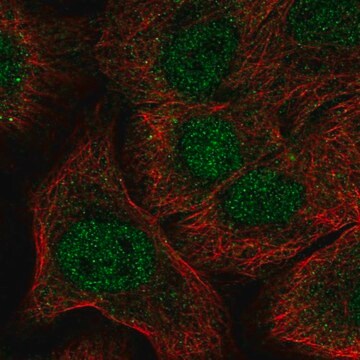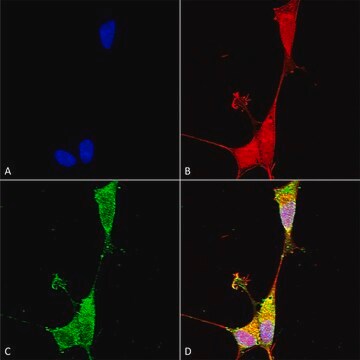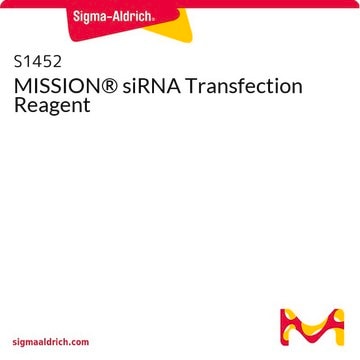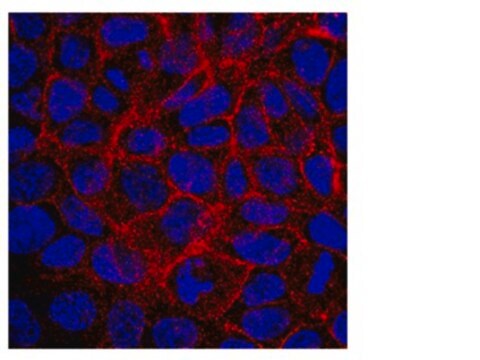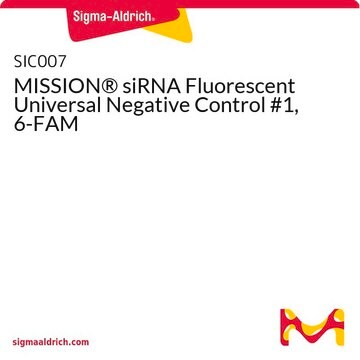07-1231
Anti-Notch1 Antibody, Intracellular
serum, from rabbit
Synonym(s):
Neurogenic locus notch homolog protein 1 precursor, Notch (Drosophila) homolog 1 (translocation-associated), Notch 1, Notch homolog 1, translocation-associated (Drosophila), Translocation-associated notch protein TAN-1, Neurogenic locus notch homolog pro
About This Item
Recommended Products
biological source
rabbit
Quality Level
antibody form
serum
antibody product type
primary antibodies
clone
polyclonal
species reactivity
human
should not react with
mouse
technique(s)
ELISA: suitable
immunohistochemistry: suitable (paraffin)
western blot: suitable
isotype
IgG
NCBI accession no.
UniProt accession no.
shipped in
wet ice
target post-translational modification
unmodified
Gene Information
human ... NOTCH1(4851)
General description
Specificity
Immunogen
Application
Optimal working dilutions must be determined by the end user.
Immunohistochemistry(paraffin):
Representative testing from a previous lot.
Optimal Staining IGF-1 With Epitope Retrieval: Lipoma.
Quality
Western Blot Analysis: 1:500 dilution of this lot detected NOTCH1, intracellular (Cleaved form) on 10 μg of HeLa lysates.
Target description
Linkage
Physical form
Not finding the right product?
Try our Product Selector Tool.
recommended
Storage Class Code
12 - Non Combustible Liquids
WGK
WGK 2
Flash Point(F)
Not applicable
Flash Point(C)
Not applicable
Certificates of Analysis (COA)
Search for Certificates of Analysis (COA) by entering the products Lot/Batch Number. Lot and Batch Numbers can be found on a product’s label following the words ‘Lot’ or ‘Batch’.
Already Own This Product?
Find documentation for the products that you have recently purchased in the Document Library.
Our team of scientists has experience in all areas of research including Life Science, Material Science, Chemical Synthesis, Chromatography, Analytical and many others.
Contact Technical Service